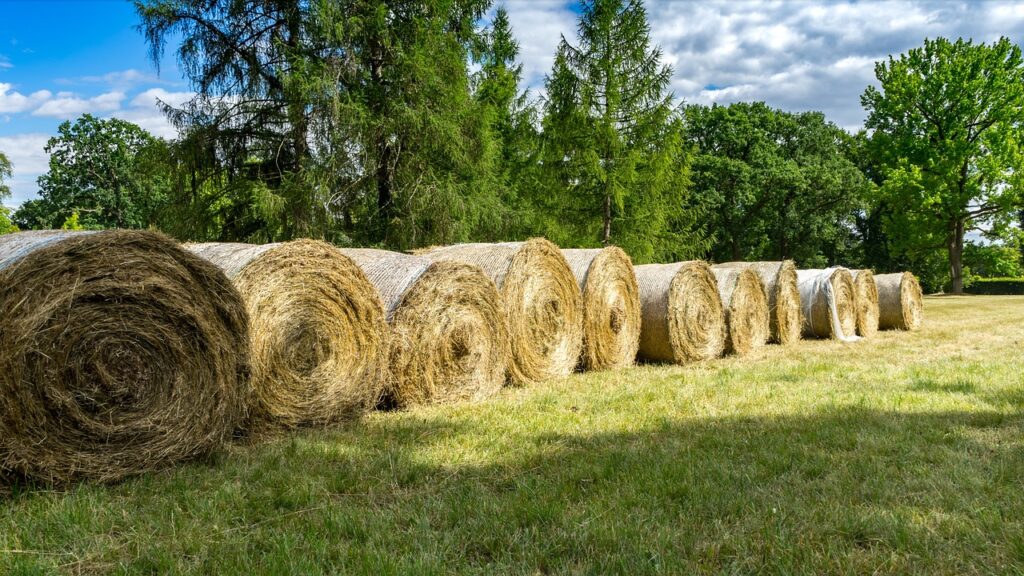Discover the Difference with Rhodes Grass Hay
Introducing Rhodes Grass Hay, your go-to solution for premium-quality, sustainably grown feed that nourishes your animals while keeping them healthy and happy. Cultivated in optimal climates, our hay boasts a remarkable nutritional profile enriched with vitamins and minerals essential for the well-being of your cherished animal.
Our superior dust extraction process ensures a cleaner hay experience, specifically designed with respiratory-sensitive animals in mind. This makes it the perfect choice for horses, rabbits, and other herbivorous pets that require gentle care. Rich in fiber, Rhodes Grass Hay supports digestive health, ensuring your animals enjoy robust energy and vitality day after day.
Free from harmful chemicals and additives, this hay is as natural as it gets, promoting the overall health and longevity of your pets. Plus, our packaging makes storage and handling a breeze—each bale is stackable and easy to manage, ensuring you can keep your supply organized and fresh for long-term use.
Elevate your animals’ diet with Rhodes Grass Hay, a choice that reflects both quality and care. With its unparalleled benefits and ease of use, it’s a must-have for any responsible pet owner or animal enthusiast seeking to enhance their pets’ quality of life. Make the switch today and witness the positive impact on your animals’ health and happiness.

Rhodes grass hay is a popular forage option for livestock, especially in tropical and subtropical regions. Its adaptability, high yields, and good nutritional profile make it an attractive choice for animal feeding. Here’s a closer look at its uses and benefits:
1. Nutritional Value and Digestibility
2. Ideal for Various Livestock
3. Adaptability to Different Environments
4. High Yield and Quick Regrowth
5. Soil Erosion Control
6. Improves Soil Health
7. Palatability and Acceptance by Livestock
8. Low Maintenance and Pest Resistance
9. Harvesting and Storage Benefits
Main College Road Lahore, Pakistan.
124 City Road London, EC1V 2NK
albarikwoodline@gmail.com
+923004386748
Copyright © 2024 Wheat Straw Bales